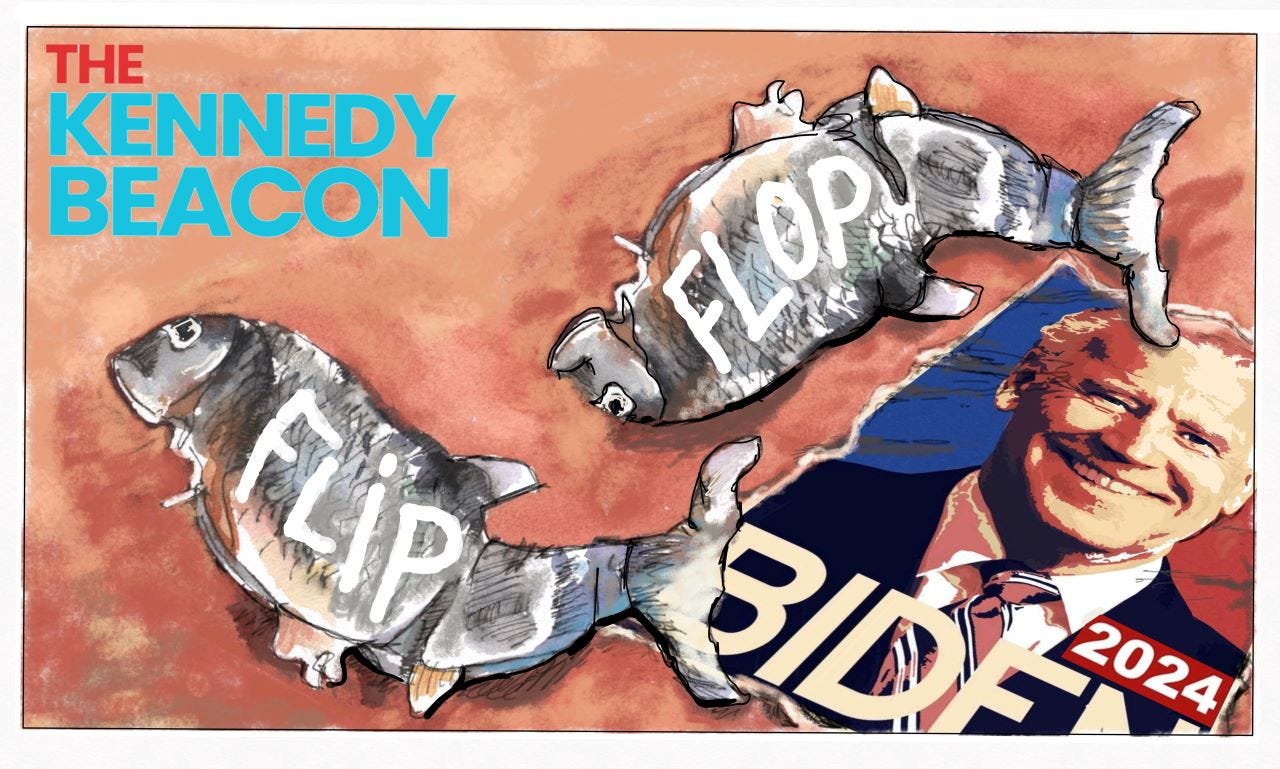By Nikos Biggs-Chiropolos, The Kennedy Beacon
While his polling numbers drop among young people, President Joe Biden claims to support Palestinian statehood. But in April, his delegation to the UN vetoed a resolution supporting membership for Palestine, as reported by the AP.
On June 10, the US led a UN Security Council resolution, which passed 14-0 with Russia abstaining, that calls for a ceasefire in Gaza and requires the release of all hostages. Still, as The New York Times reports, it may just be more political posturing, given that Hamas has not agreed to the plan and Israeli president Benjamin Netanyahu has called a permanent ceasefire a “nonstarter.”
Recognizing the complexity on the ground in Gaza, presidential candidate Robert F. Kennedy Jr. takes a different approach than Biden. He emphasizes the need for a permanent resolution in the Holy Land in his “Path to Peace” podcast series. As reported in the Beacon, in part 1, Kennedy spoke with Palestinian Mohammad Dajani Daoudi and Israeli Yossi Klein Halevi, discussing at length the need for cooperation between the nations. In part 2, Israeli Dr. Einat Wilf and Palestinian John Aziz offer their viewpoints, with Kennedy and both guests specifically emphasizing the goal of a two-state solution.
As he introduces them, Kennedy says, “I have such enormous respect for the two people who are guests today and for their willingness to actually come together and talk about the issue, how we achieve a path to peace in the Middle East.”
Wilf is an Israeli academic who has previously served in the country’s parliament and the author of We Should All Be Zionists. Aziz is a UK-based writer whose family is from Palestine and still maintains close ties in the territory. He has written for numerous publications, including The Atlantic, Foreign Policy, and the Jewish Chronicle. They agree that both the Jewish and Muslim peoples can claim historic spiritual ties and a deep connection to the Holy Land and expressed a desire for the two populations to coexist.
The discussion highlights how failures to achieve peace may be blamed on the existing leadership in the two countries, as well as the United Nations and US leaders – including the Biden administration. This extremist leadership has exacerbated conflict between Israel and Palestine, while moderate voices on both sides are reduced to minorities who have been unable to achieve even basic negotiations or cooperation.
Kennedy points to the corruption of Hamas and to the fact that Netanyahu has authorized cash payments of up to $5 billion to Hamas in Gaza through Qatar. Supporting Hamas in this way served to disempower the more moderate Palestinian Authority, which controls the West Bank. Evidently, both sides encourage extremism, while their own people suffer the consequences of corrupt leadership.
Kennedy speaks about the natural beauty of the Palestinian territory, as well as its geographically advantageous position in the Mediterranean Sea. He evokes the notion of a “Singapore of the West,” referring to the Asian city-state that has become the second-busiest port in the world.
Aziz echoes this sentiment, claiming that Palestine could aspire to its own economic prosperity, which would in turn help move focus to other things than grievances toward their neighbors. He elaborates: “What they have in Dubai and Abu Dhabi and Riyadh and Tel Aviv is these amazing Middle Eastern metropolises. And I think it is quite plausible, that if we really set our mind to it and set our hearts to it honestly, truthfully, we can build an amazing version of Gaza.”
Notably, the AP reported that Ireland, Spain, and Norway have declared that they will recognize the Palestinian state. The vision shared by Kennedy, Wilf, and Aziz of a two-state solution is gaining real political traction around the world, but a determined leader is needed to break the impasse on the American side.
Nikos Biggs-Chiropolos studied government at Georgetown University and interned for several Democratic elected officials and their campaigns, and for other affiliated groups. He then earned a master’s degree in urban studies in France, where extremely strict COVID-19 lockdowns led to his political reawakening and inspired him to try to help fix the broken two-party system.







Young people? Kennedy popular? Re Palestine?
You gotta be kidding.
I go on Palestine Solidarity marches and Kennedy is dead in the water.
They all talk about Jill Stein, Emanuel Pastreich and another guy I can't remember.
And they are young too, mostly. Much younger than the Kennedy team I used to march with last year.
If you have any clout with Bobby, insist that he talk to Ilan Pappé, author of “The Ethnic Cleansing of Palestine” and then do an interview with Norman Finkelstein, author of “The Holocaust Industry” and numerous other titles on the plight of Gaza.
The four correspondents in his two interviews are no doubt well meaning and well informed but I think Kennedy needs to be far more upfront and condemn the Gaza genocide in no uncertain terms.
Go back to his interview with Rabbi Shmuley Boteach. Kennedy folded completely and went into a craven submission to the cause of Zionism.
The Rabbi is calling the shots.
It's time for Bobby to face his demons.
C'mon Bobby, speak the Truth.
Or are you afraid of AIPAC?
.
Yes, I still wear my Kennedy T-shirt. When I get responses, which is quite often, I tell people:
“All three major candidates are Zionist. But of the three, I find Kennedy is much better on other issues”.
Israel and the Kennedy Assassinations – note the BIPARTISAN War party 60+ year silence
Jack Ruby, who killed Lee Harvey Oswald, was Jewish. His birth name was Jacob Leon Rubenstein, and he was born to Polish Jewish immigrants.
JFK pushed to halt Israel's acquisition of nuclear weapons.
RFK tried to designate a precursor to AIPAC as a foreign agent. He was “killed” by drugged/hypnotized Palestinian.
Why has Israel been avoided when discussing the Kennedy assassinations?
https://open.substack.com/pub/husseini/p/israel-and-the-kennedy-assassinations?r=byea&utm_medium=ios